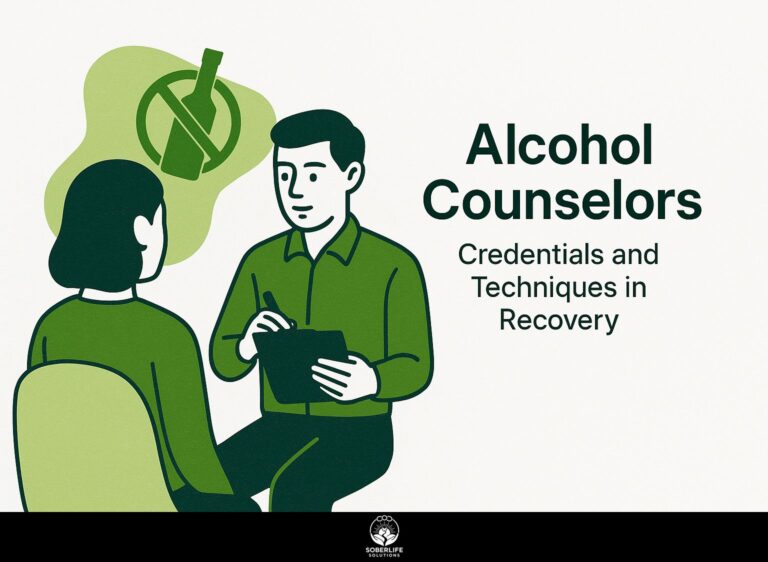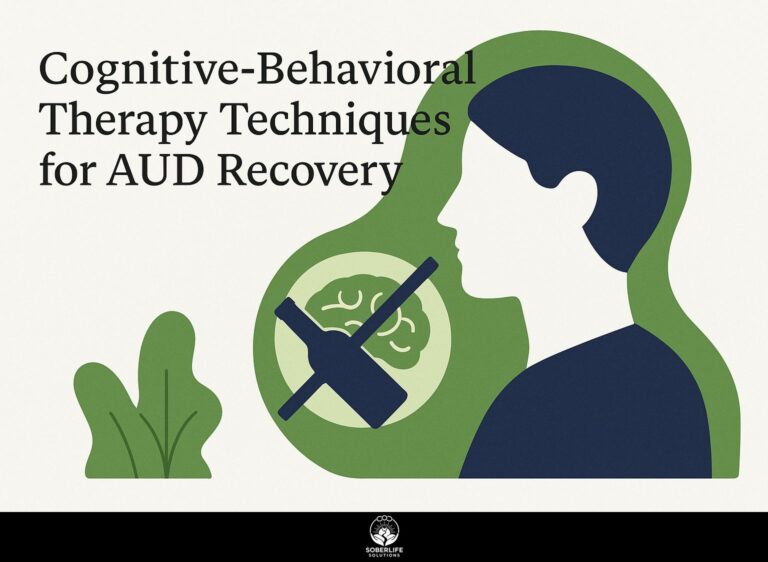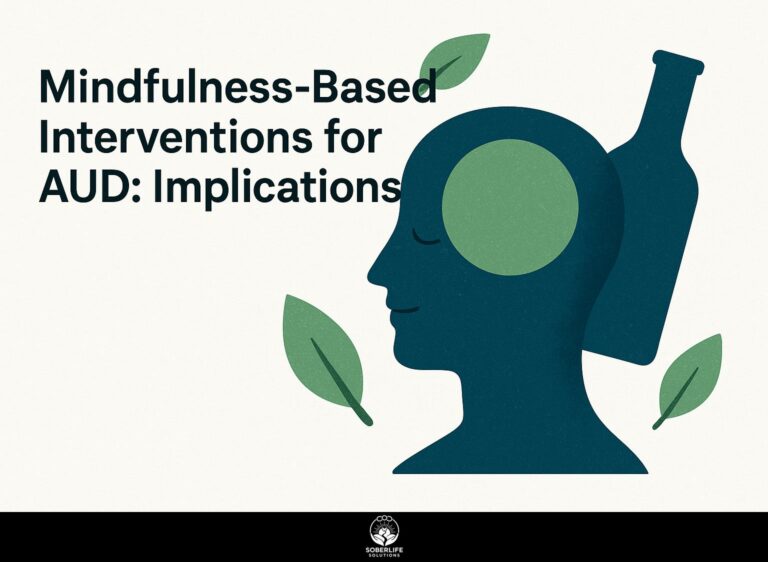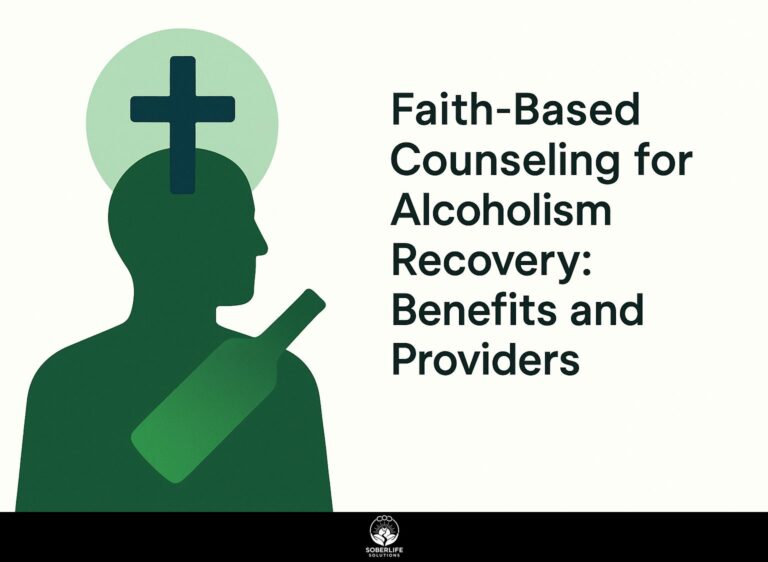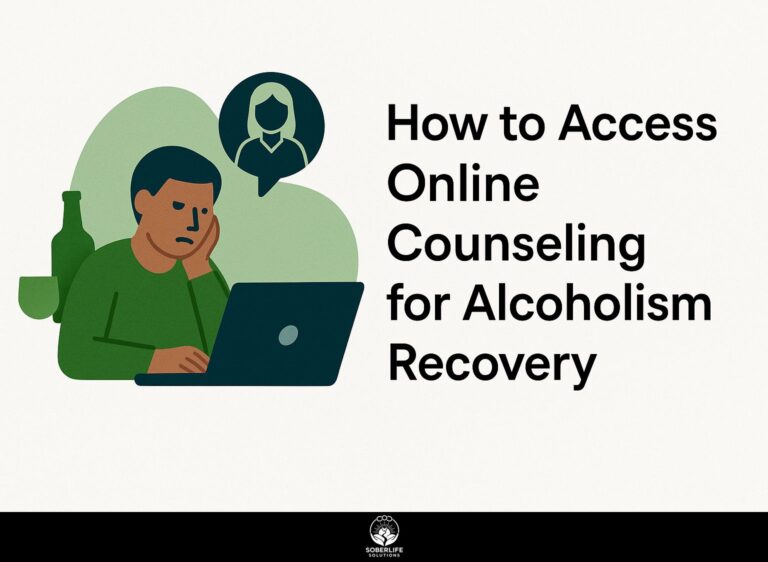Counseling Services in Rural Areas for Alcoholism Recovery: Challenges and Solutions
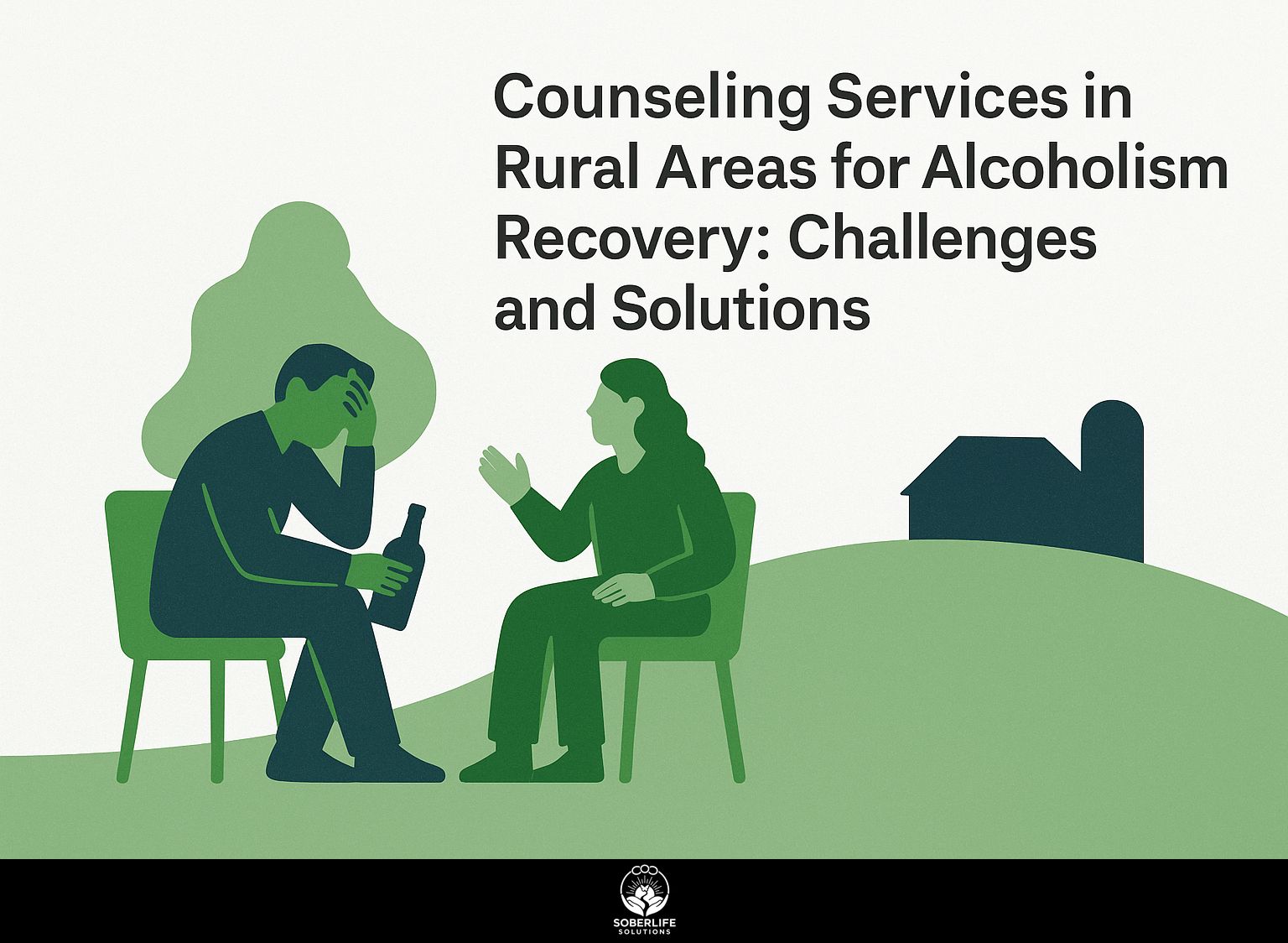
Alcoholism remains a pressing health concern, particularly in rural areas where access to substance abuse counseling services is limited. Unlike urban areas, these communities face unique treatment barriers, such as stigma and resource constraints. This article looks at the difficulties counselors face when helping people recover in rural areas and points out new methods that can lead to better treatment results. Learn how specific strategies can lead to successful recovery and strengthen community resilience.
Key Takeaways:
Prevalence and Impact
In rural areas, the prevalence of alcohol use disorder can be 1.5 times higher than in urban settings, impacting community health and well-being significantly.
This difference comes from a few reasons, like not having enough healthcare, missing support services, and cultural beliefs about drinking.
For example, people living in rural areas often struggle to find treatment centers. A study by the National Institute on Alcohol Abuse and Alcoholism showed that only 12% of rural residents looking for help received proper treatment. This difficulty is further highlighted in research by ScienceDirect, which discusses the hazardous alcohol use and related harm prevalent in these communities.
Addressing these issues requires specific actions, such as mobile clinics and community outreach programs, which can provide resources and education about the risks of alcohol misuse.
Challenges Faced by Counseling Services

Counseling services in rural areas face many obstacles that make it hard to provide effective treatment, including problems with access and limited resources.
Limited Accessibility
Many rural clients face significant barriers to accessing treatment due to a lack of nearby facilities, with only 30% of rural counties having a treatment center.
This scarcity greatly impacts attendance, often leading to missed appointments and inadequate care. To address this issue, innovative solutions like mobile clinics can be implemented.
For example, organizations such as the Mobile Health Map offer resources for setting up these clinics, which provide flexible scheduling and bring services directly to underserved communities. An illustrative example is highlighted by NPR, which discusses how clinics on wheels bring essential medical services to healthcare deserts (NPR, 2023).
Telehealth options can extend reach while reducing travel needs. By combining mobile clinics with online consultations, more people in rural areas can get the care they need quickly.
Stigma and Cultural Barriers
Stigma around substance abuse in rural regions often stops people from getting help, as 50% of clients say they fear being judged as a major obstacle.
To combat this stigma, communities can implement educational programs that highlight personal stories of recovery.
Organizing workshops or support groups led by people who have gone through treatment can provide a safe environment for sharing experiences and promoting discussion.
Utilizing social media platforms to launch awareness campaigns can also help normalize conversations around substance abuse. Working with local influencers to share helpful content or stories can change how people view things and create a more personal connection with residents (our guide on COVID-19’s impact on addiction explores further challenges and solutions), promoting a supportive atmosphere for those who need help.
Resource Constraints
Many counseling programs struggle because they do not have enough money. More than 70% of these programs say that lack of funding is a major problem for providing good treatment.
To get funding and help, programs can use different approaches.
- First, consider applying for grants from organizations such as the Substance Abuse and Mental Health Services Administration (SAMHSA), which offers various funding opportunities. This approach aligns with strategies recommended by the Health Resources and Services Administration, which also provides valuable grant programs to support rural health initiatives.
- Second, involve the community by organizing campaigns and events that emphasize the need for mental health services, and encourage local backing.
- Third, build partnerships with local businesses that may sponsor programs or offer donations.
Use websites like GoFundMe to connect with more people and collect small donations that together can make a big difference.
Effective Counseling Approaches
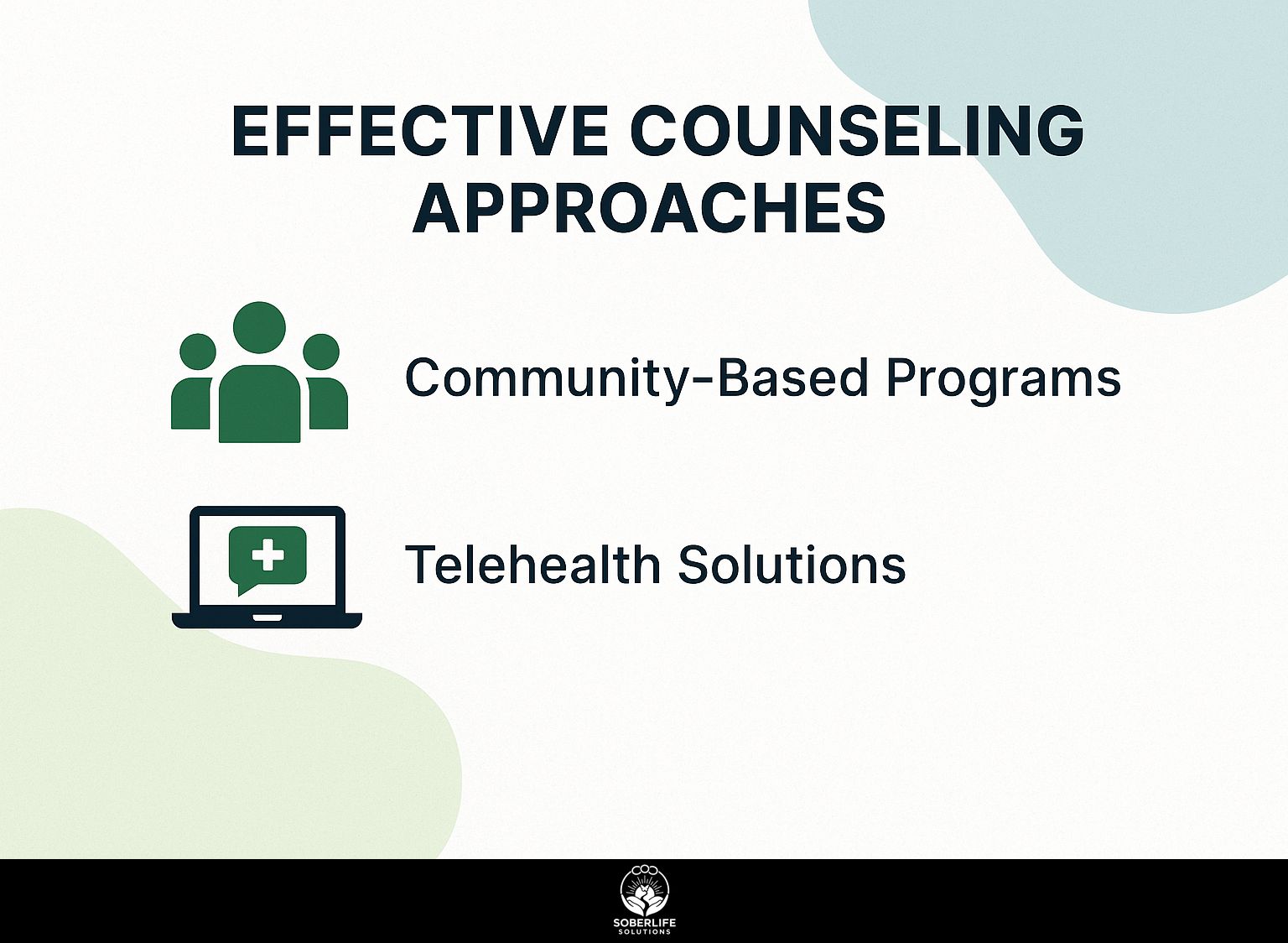
Using effective counseling methods suited for rural communities can greatly improve treatment results for alcohol use problems. Those interested in alternative approaches might find the benefits of teletherapy for alcohol use disorder particularly relevant, offering new avenues for access and recovery.
Community-Based Programs
Programs that use local resources and support networks have shown a 30% increase in treatment adherence among people in rural areas.
For example, programs like the Rural Community Health Initiative partner with local health departments and churches to provide accessible resources such as mobile clinics and mental health workshops.
Working with groups such as the National Rural Health Association improves these projects by providing training and resources specifically for rural areas. By adding services like help with transportation and telehealth, access can be improved even more.
These strategies engage the community and create trust, helping clients adhere to treatment plans.
Telehealth Solutions
Telehealth services are now a key way to provide counseling in rural areas, with research showing a 25% drop in canceled appointments.
To effectively implement telehealth in your practice, consider using platforms like Zoom or Doxy.me, which provide secure, HIPAA-compliant video conferencing.
Encourage clients to set up a quiet, distraction-free space for sessions. Use tools such as Calendly or Acuity to simplify booking appointments and automatically send notifications, leading to a 30% drop in missed meetings.
Teaching staff about online behavior and session rules can improve the virtual experience, helping clients feel involved and supported during their counseling sessions.
Collaborative Efforts for Improvement
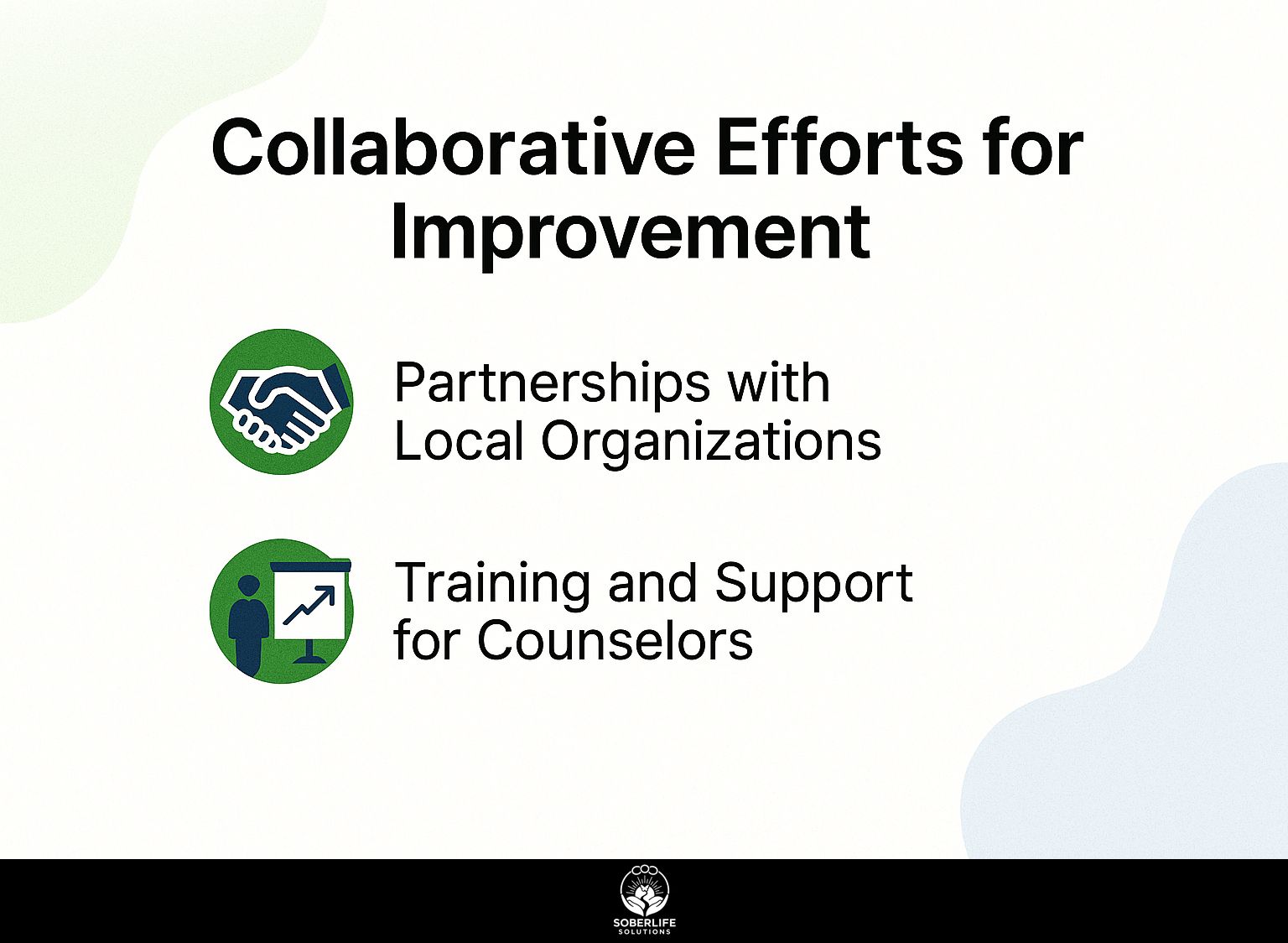
Collaborating with local organizations and agencies is essential to addressing ongoing challenges to healthcare in rural areas. Related insight: Peer support settings in hospitals and community centers can greatly enhance these efforts by providing comprehensive care solutions.
Partnerships with Local Organizations
Working with local groups can improve resource sharing and support for alcohol treatment programs, leading to better involvement from clients.
To initiate effective partnerships, start by identifying local nonprofits and healthcare organizations that align with your mission.
Working together with a community health center can give you access to medical help and referrals. Joining forces with a local support group can strengthen peer recovery programs.
Schedule regular meetings to discuss mutual goals and share resources, like hosting joint workshops on addiction recovery.
Use tools like Google Drive to communicate and share documents easily, keeping everyone informed and engaged during the partnership.
Training and Support for Counselors
Ongoing training and professional development for counselors are essential for equipping them to handle the unique challenges of rural substance abuse treatment.
To improve their skills, counselors should look into certain training programs like those from the Substance Abuse and Mental Health Services Administration (SAMHSA), which offer free online courses.
Being a part of groups like the National Rural Mental Health Association can help you meet new people and find useful resources.
Implementing regular supervision sessions with peers or mentors allows counselors to discuss cases and stay informed about best practices.
These strategies improve personal success and help build a supportive network for people working in rural areas.
Case Studies and Success Stories
Looking at examples of successful alcohol treatment programs in rural areas shows methods that work well and can be used in other communities like them.
Innovative Programs in Action
Programs such as the Rural Substance Abuse Initiative have successfully reduced alcohol-related problems by integrating multiple treatment options and community resources.
These programs often include evidence-based strategies such as Cognitive Behavioral Therapy (CBT) and Motivational Interviewing, which help clients understand their behavior and develop coping mechanisms.
Community participation is important; for example, local groups can offer support meetings and learning sessions.
Tools like the Substance Abuse and Mental Health Services Administration (SAMHSA) database enable program coordinators to identify and connect with regional resources effectively.
By creating partnerships among healthcare providers, schools, and community groups, these initiatives build a lasting support network that addresses addiction as a whole.
Plans for Counseling Services
Counseling services in rural areas need to focus on changing policies to solve funding issues and improve healthcare access for substance abuse treatment.
Policy Recommendations
Specific policy recommendations, such as increasing funding for rural health initiatives and enhancing training for healthcare providers, can significantly improve treatment access.
For example, giving federal grants to rural clinics can help them grow their services and hire expert staff.
Providing telehealth training for local healthcare workers helps them handle substance abuse cases well. They can use tools such as Zoom or specific systems like Doxy.me.
Studies indicate that telehealth can raise patient attendance by 30%, which is very important in rural areas where traveling to a clinic is difficult.
By focusing on these programs, we make a welcoming space for people who need support, which results in improved health results.
Frequently Asked Questions
What are the main challenges in providing counseling services for alcoholism recovery in rural areas?
Some of the main problems include not having enough trained counselors, not enough resources and money, stigma around getting help for alcoholism, and the challenge of getting individuals to counseling sessions because they are far away.
How do these issues affect the recovery process for people getting help for alcoholism in rural areas?
The challenges can significantly hinder the recovery process as individuals may not receive the necessary support and guidance from trained professionals, leading to a higher risk of relapse. Limited resources can also limit the effectiveness of treatment options.
What solutions have been implemented to address these challenges and improve access to counseling services in rural areas?
Some solutions include tele-counseling services, where individuals can access counseling sessions remotely, increasing access to trained professionals. Mobile counseling units have been used to reach people in remote areas, and working with local organizations has helped to get more money and resources.
Do people looking for help with alcohol recovery face different challenges in rural areas compared to cities?
Yes, in addition to not having enough resources and specialists, people in rural areas might deal with issues like feeling isolated, having few transportation choices, and living in a tight community that might look down on getting help for alcoholism.
How can local communities play a role in addressing the challenges and improving access to counseling services for alcoholism recovery in rural areas?
Communities can be very important by decreasing the negative views about alcoholism and encouraging awareness of available help and support. They can also work with organizations to offer transportation and help for people looking for counseling.
How effective are counseling services in rural areas for alcoholism recovery?
The effectiveness of counseling services in rural areas depends on various factors such as accessibility, availability of resources, and support from the community. However, with solutions like tele-counseling and mobile units, these services have become more effective in recent years.

